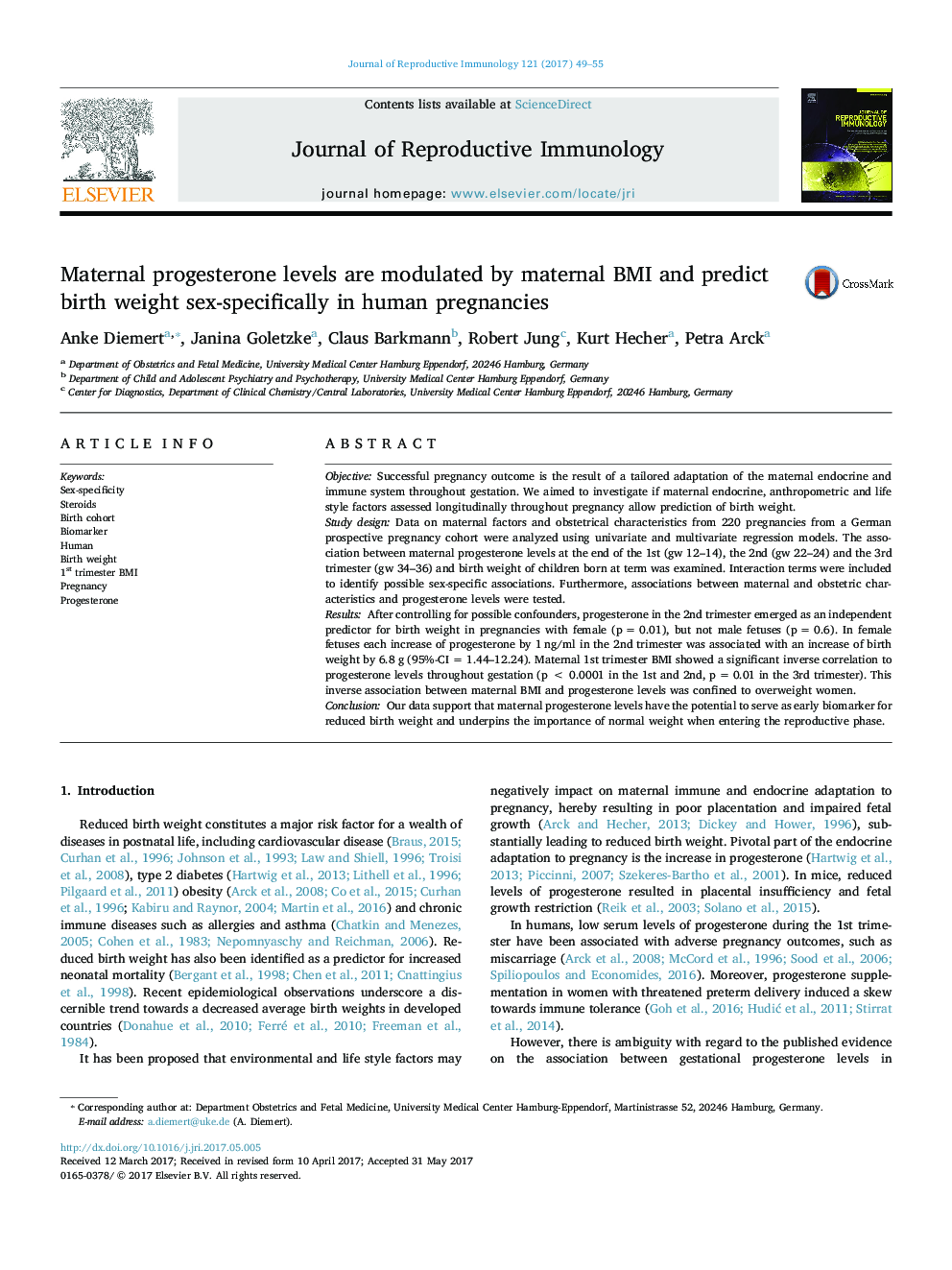| کد مقاله | کد نشریه | سال انتشار | مقاله انگلیسی | نسخه تمام متن |
|---|---|---|---|---|
| 5696369 | 1600691 | 2017 | 7 صفحه PDF | دانلود رایگان |

- Reduced birth weight is associated with increased infant mortality and disease risk in postnatal life.
- Prediction of an increased risk for a reduced birth weight early during human pregnancy can open interventional avenues to improve birth weight.
- In female newborns we observed a positive association between maternal serum progesterone levels and birth weight.
- In female fetuses each increase of progesterone by 1Â ng/ml in the 2nd trimester of pregnancy was associated with an increase of birthweight by 6.8Â g.
ObjectiveSuccessful pregnancy outcome is the result of a tailored adaptation of the maternal endocrine and immune system throughout gestation. We aimed to investigate if maternal endocrine, anthropometric and life style factors assessed longitudinally throughout pregnancy allow prediction of birth weight.Study designData on maternal factors and obstetrical characteristics from 220 pregnancies from a German prospective pregnancy cohort were analyzed using univariate and multivariate regression models. The association between maternal progesterone levels at the end of the 1st (gw 12-14), the 2nd (gw 22-24) and the 3rd trimester (gw 34-36) and birth weight of children born at term was examined. Interaction terms were included to identify possible sex-specific associations. Furthermore, associations between maternal and obstetric characteristics and progesterone levels were tested.ResultsAfter controlling for possible confounders, progesterone in the 2nd trimester emerged as an independent predictor for birth weight in pregnancies with female (p = 0.01), but not male fetuses (p = 0.6). In female fetuses each increase of progesterone by 1 ng/ml in the 2nd trimester was associated with an increase of birth weight by 6.8 g (95%-CI = 1.44-12.24). Maternal 1st trimester BMI showed a significant inverse correlation to progesterone levels throughout gestation (p < 0.0001 in the 1st and 2nd, p = 0.01 in the 3rd trimester). This inverse association between maternal BMI and progesterone levels was confined to overweight women.ConclusionOur data support that maternal progesterone levels have the potential to serve as early biomarker for reduced birth weight and underpins the importance of normal weight when entering the reproductive phase.
Journal: Journal of Reproductive Immunology - Volume 121, June 2017, Pages 49-55